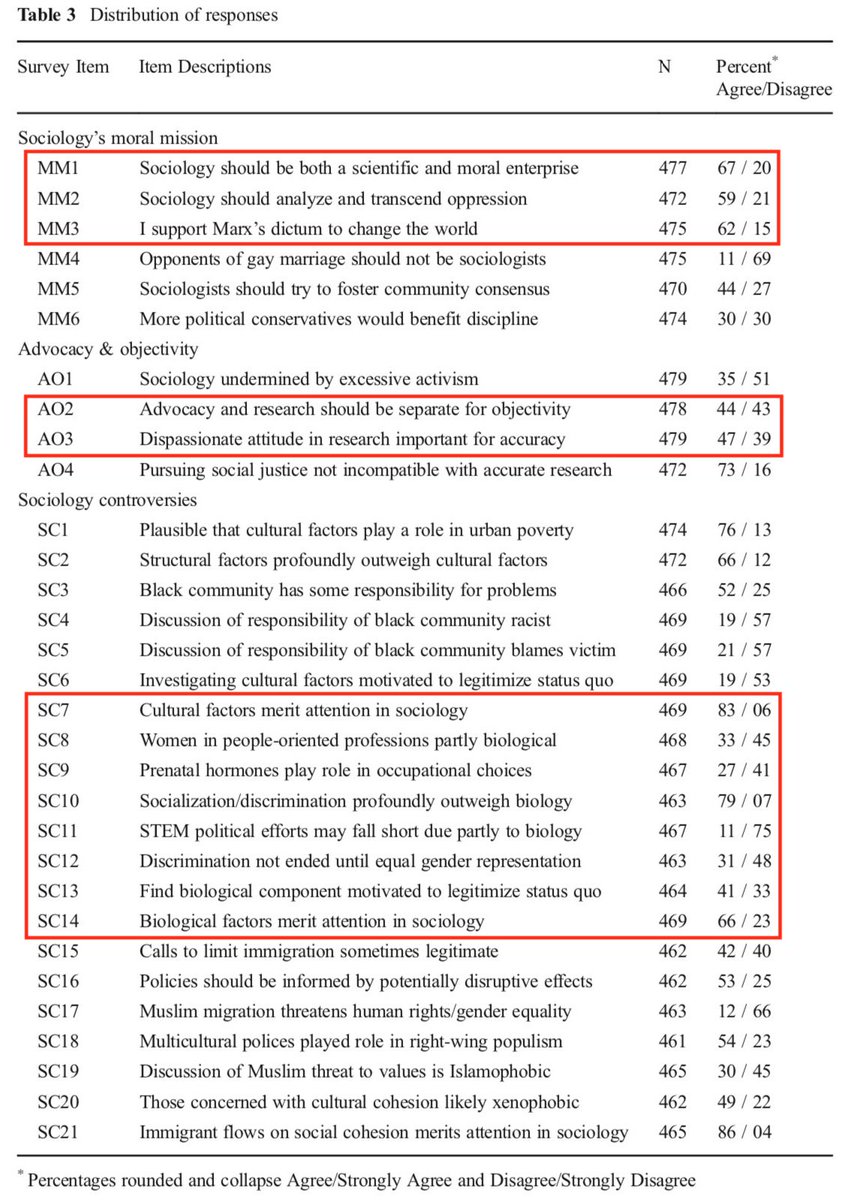link.springer.com/article/10.100…
Twice as many of them disagree that "dispassionate attitude in research important for accuracy" as agree
'If I dared to say any of the things I’m saying in this survey in any non-anonymous situation it would probably be the end of my career. I just bite my lip and say all of the politically correct things I’m supposed to say...
...
- 'Talking about the 'black community' as opposed to the rest of us seems racist to me.'
- 'Preaching to people whose behavior is tied to constraining structural circumstances is paternalistic and usually self-defeating.'
...
- 'I really *really* hope you’re not seriously considering white supremacist ideas as valid ideas to explore.'
...
- 'Excuse me taking this personally and the expletive to follow – but this viewpoint is so *f*cking* irritating. The assumption that the 'black' community is culturally different than the rest of the Americans is one those perpetual racist ideas that continues to circulate.'
...
- 'I’m not opposed to someone studying this, if only to debunk it.'
- 'Yes, so that they can be discredited. Biological determinism around race and gender is so ingrained in the U.S. that it must be addressed and debunked.'
...
- 'I would never state that someone should refrain from exploring a research question even if I think it’s a waste of time or money.'
...
- 'It only merits attention insofar as we have data that show that gender does not
universally have the same effects on occupational choices or the division of labor.'
...
- 'Who am I to say don’t study that? I mean, maybe we should study if fish retire? Do salads feel pain when we eat them?'
...
- 'Investigate the 'disruptive effects on the social cohesion' of immigrant families, separated by economic necessity and by political hysteria.'
...
- 'It seems like we should look, first, to how immigration has disrupted indigenous or involuntary contingencies. Would be more helpful to look at how our foreign policy affects immigration if we do not want newcomers.'
...
- 'I agree as long as policy is also informed by research that shows that more diverse communities thrive.'
...
- 'No, if the research leads to segregation and other racist policies. Yes, if the research finds ways to successfully help immigrant community join with existing communities and develop successful avenues for cultural exchange and appreciation (and avoid appropriation).'










